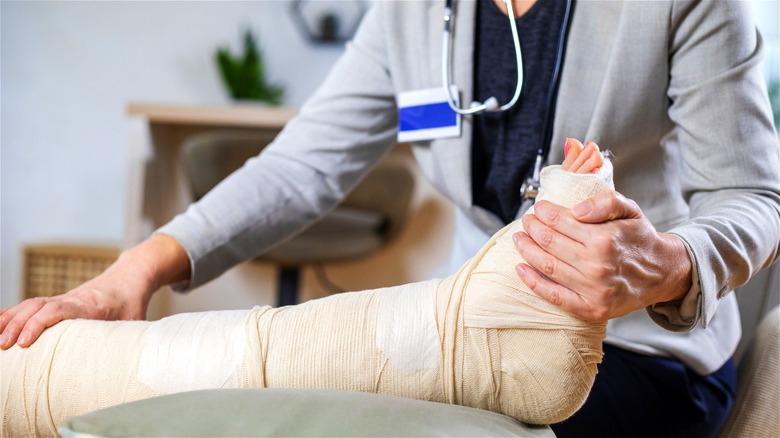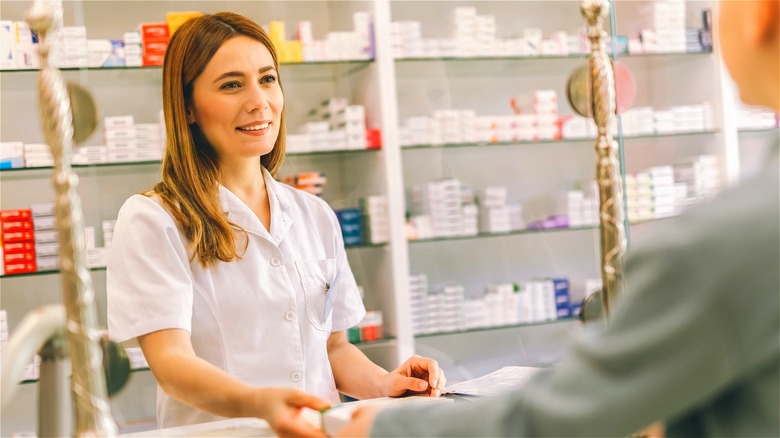Rick Steves Explains What To Do When Tourists Have A Medical Emergency In Europe
Travel expert Rick Steves counts himself lucky to have remained healthy on his countless excursions through Europe. However, he has heard too many stories of people needing treatment while abroad. Fortunately, Europe's socialized medicine means that everyone — including visitors — is entitled to universal healthcare. One traveler told Steves of the time she went to a Danish hospital with a sprained ankle and recieved complimentary X-rays, bandages, and crutches on the condition that she returned the crutches before leaving the country.
However, don't expect a deluge of freebies on the continent, and think twice before participating in health tourism. Europeans pay tax for state healthcare, and citizens of some countries, including Germany and the Netherlands, pay mandatory health insurance to support basic functions such as doctor consultations and prescriptions. These payments mean you're in safe hands if something goes wrong, though. Americans can expect a similar level of care in Europe as they'd get back home. So, whether you catch a stubborn cold, injure yourself, or suffer a medical emergency, here are the steps Rick Steves recommends.
Navigating pharmacies, clinics, and emergencies in Europe
Sometimes, you can't evade the germs on the road, even if you've followed the best ways to avoid getting a cold while traveling. If you feel yourself coming down with something — congestion, fever, upset stomach, blisters, rashes — Rick Steves recommends visiting a pharmacy. European pharmacists can diagnose minor ailments and provide medication often without a doctor's prescription. If you're in a city, you can expect to find 24-hour pharmacies. If your issue is beyond a pharmacist's remit, they will refer you to a doctor's clinic. Steves has been to a few European clinics on his travels, and he's actually enjoyed the efficiency and quality of service. Small payments are typical here, so remember to get a receipt for insurance purposes.
It's essential to familiarize yourself with local emergency protocols should you experience or witness an accident or medical emergency. In the European Union, call 112 for an ambulance. In the United Kingdom, call 999. If you're in a busy area, locals and service workers should attend to this, and emergency workers will arrive quickly. Steves also advises that it's very important to report any ailments and bills for every medically-related cost you incur so that you can submit them to your insurance provider. Fortunately, in Steves' experience, most trips occur in perfect health, especially if travelers bring healthy habits on vacation.

